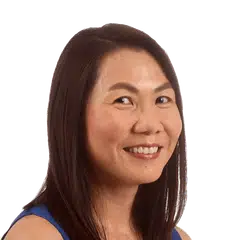School of grit: Banking head went from playing truant in primary school to acing poly and uni
Sign up now: Get ST's newsletters delivered to your inbox
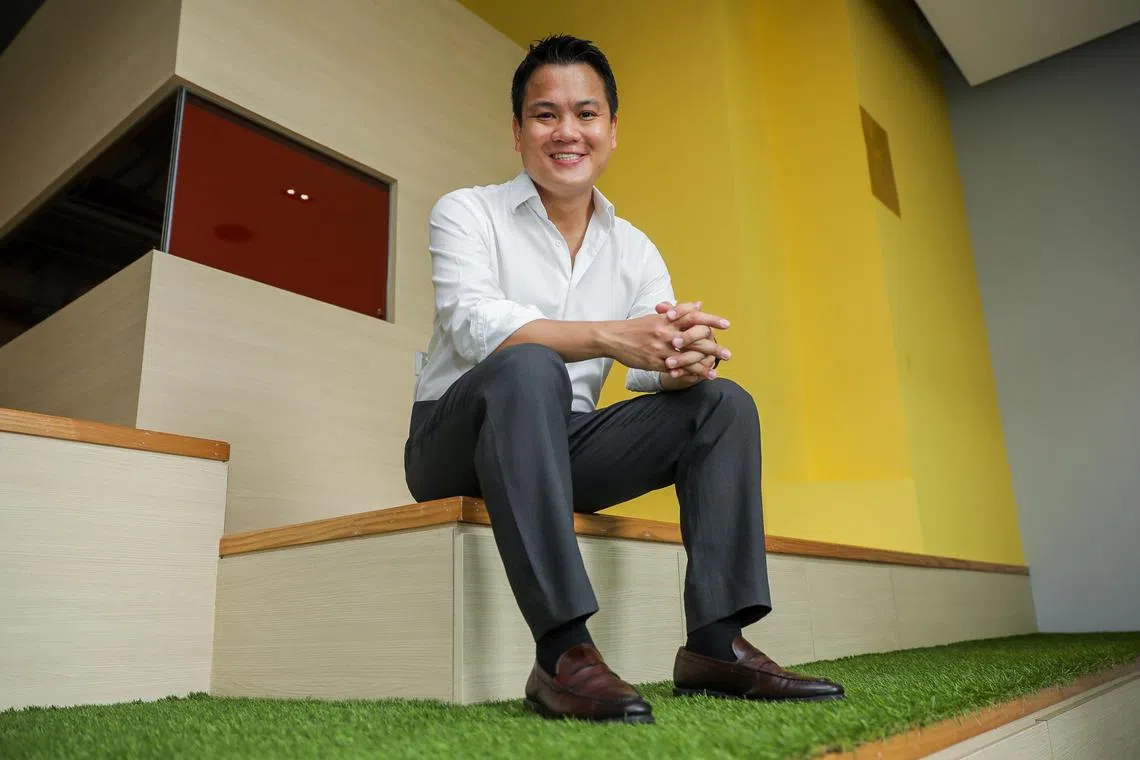
Mr Alvin Lim is now the executive director and head of Asia environmental products at a global investment bank.
ST PHOTO: LUTHER LAU
SINGAPORE – When Mr Alvin Lim’s parents went on a holiday without him while he was in Primary 5, he decided he was not going to go to class.
Instead of heading to Tao Nan School from his four-bedroom private apartment in Kembangan, he would make his way to a trading card game shop near Paya Lebar MRT station to play Magic: The Gathering, a collectible card game he was obsessed with.
Even when his parents returned after two weeks, he continued to play truant for three months, he says, flashing his report card to show how many school days he missed.
“They sent me for professional counselling and even to Boys’ Town a couple of times because they didn’t know what to do with me,” says Mr Lim, who was a latchkey kid until secondary school when his grandmother came to live with the family.
His mother worked in the semiconductor industry and his father in enterprise resource management. Both are now retired and in their 70s. He has a sister who is eight years older.
Today, the youthful 38-year-old looks every centimetre the corporate boss in his crisp white shirt and smart business pants.
The executive director and head of Asia environmental products at a global investment bank boasts an enviable resume, with a stint in Singaporean sovereign wealth fund GIC as vice-president of enterprise strategy both in Singapore and China, and a master’s of science in sustainability management from Columbia University.
He joined the NUS Business School as a senior fellow in its NUS Centre for Governance and Sustainability in August.
A model student? He says he was anything but that during his youth.
“I never liked to study. I always played truant and I’m one of those kids who always got caned in school,” he says, adding that he once had to wear a sign that read “My name is Alvin and I didn’t do my homework” and walk around the canteen as punishment.
After his parents appealed to his teachers following his truancy, he was allowed to progress to Primary 6 in the lowest-ranked class. He scored 204 for his Primary School Leaving Examination and got into the Express stream at St Patrick’s School.
He ranked 35 out of 39 students in Secondary 1 and, by Secondary 2, he was last in class. The next year, he was transferred to the Normal (Academic) stream.
What hurt was when a good friend from Tao Nan told him they could not hang out because her parents felt he was a bad influence.
“I felt like such a loser in life,” says Mr Lim, who was also mocked by other Normal (Academic) students for being “stupid” because he was dropped from the Express stream.
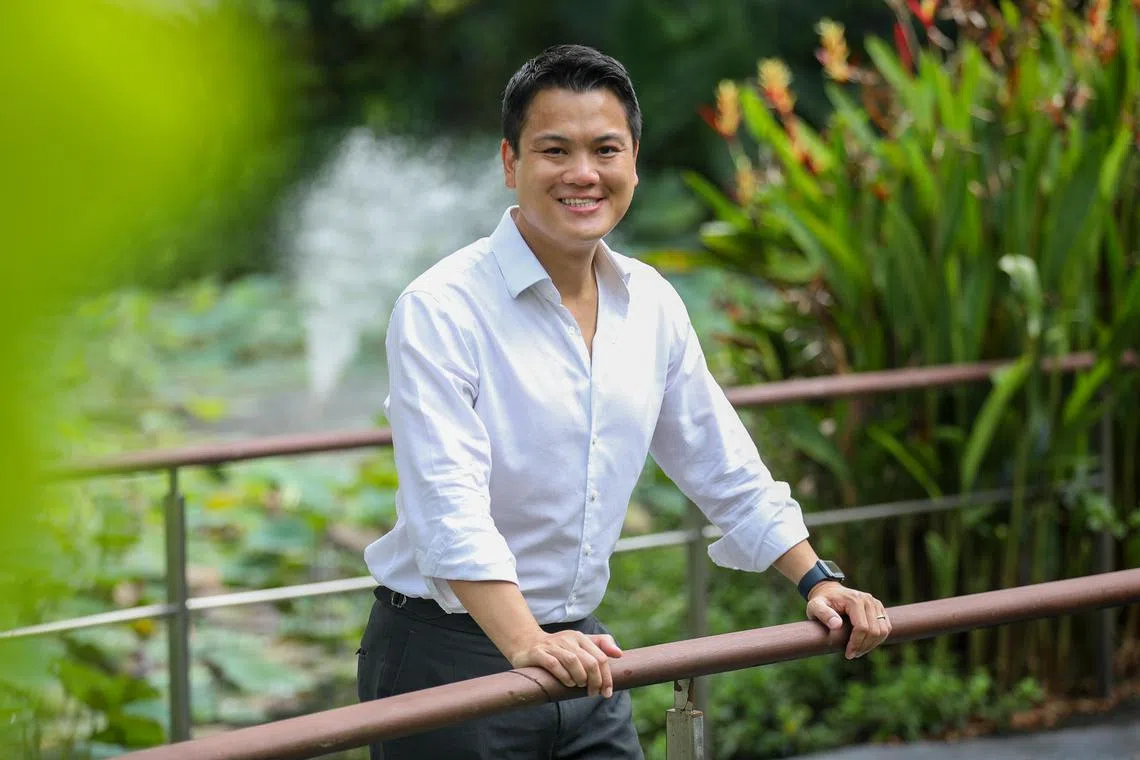
The executive director and head of Asia environmental products at a global investment bank boasts an enviable resume.
ST PHOTO: LUTHER LAU
While his parents had always inculcated independence and taught him to bear the consequences of his actions, he felt trapped in a cycle he could not break.
When he was in Secondary 3, he attended a primary school reunion during which a friend invited him to New Creation Church. Then an atheist, Mr Lim declined, but decided at the last minute to join his friend.
It was a decision that changed his life, he says. He became a Christian a few months later and attended church three times a week, developing friendships with people who encouraged him and gave him hope.
“No one asked you what school you went to or who your parents were. It felt like a safe space to meet friends,” he says.
At the same time, his chemistry teacher Sivasubramaniam Shakthi, who was the head of department for pupil welfare, lent a listening ear when he asked her about the purpose of life one day in the canteen.
“She told me to redirect all the energy and enthusiasm that I had for computer games towards studies. Somehow that, combined with God’s grace in my life, kind of worked out,” he says.
Armed with renewed purpose, he passed his N levels by taking four subjects and, a year later, passed his O levels with 14 points across five subjects and Chinese at B level. It was sufficient for him to pursue a diploma in banking and financial services at Ngee Ann Polytechnic’s School of Business & Accountancy in 2004.
Mr Lim, who had always been interested in his parents’ stock trading activities, felt that finance was a fair playing field that offered opportunities to someone who was willing to work hard.
He remembers looking at the now-defunct Graduate Hall of Fame in Ngee Ann Poly and aspiring to have his name up there, which at the time felt like a “really crazy aspiration”.
Poly turned out to be the right choice as he thrived under its applied learning approach.
“I was very hungry to succeed in poly and I always remembered St Patrick’s motto, Potest Qui Vult,” he says of the Latin phrase, which translates into “he who wills, can”.
He also credits Mrs Choo Jin Yi, an academic manager from the business school, who taught him to organise his time and alerted him to opportunities.
Three years later, his name was added to the board as the business school’s valedictorian for the graduating cohort.
He was student council president, student sports council vice-president and investment club president, and started Sife (Students In Free Enterprise), a social entrepreneurship club, now known as Enactus.
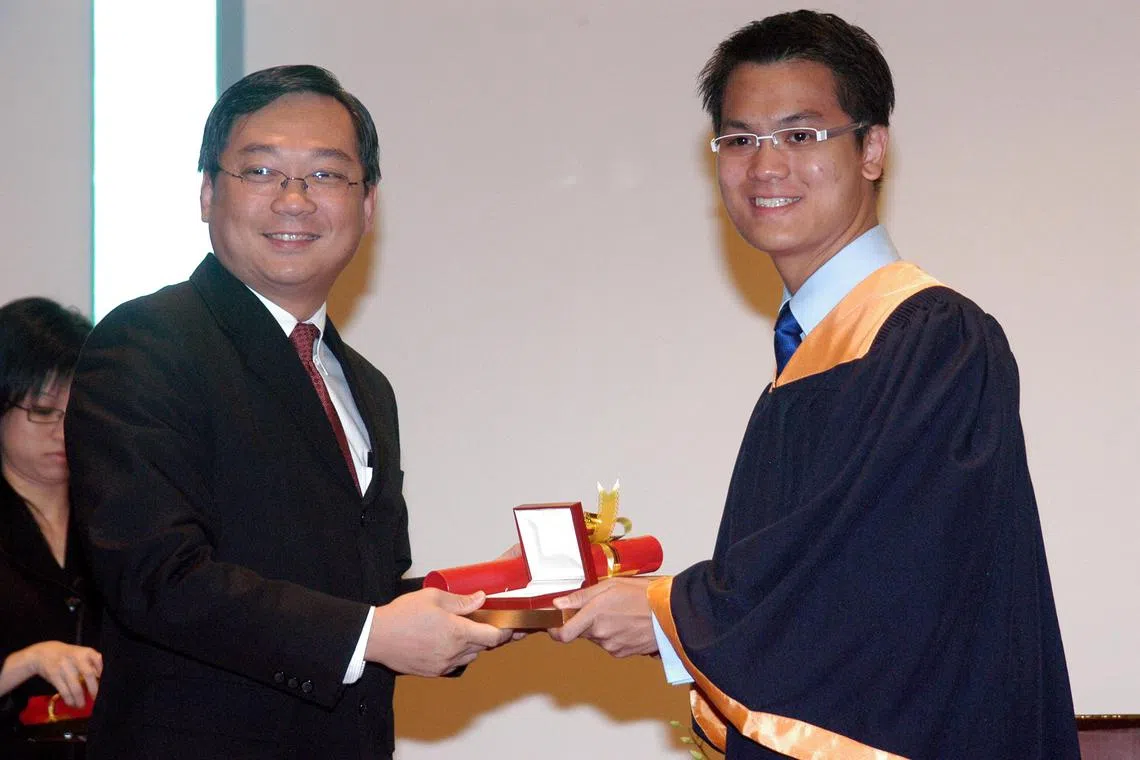
Mr Alvin Lim receiving the Lien Ying Chow Gold Medal in 2007 from then-Minister of State for Education and Manpower Gan Kim Yong. The award is for the most outstanding non-technology graduate from Ngee Ann Polytechnic.
PHOTO: COURTESY OF ALVIN LIM
He was also active in the National Youth Council’s Young ChangeMakers, a programme in which junior college and poly students were empowered to provide seed funding to those starting community projects. It sparked a desire to contribute to youth causes such as his current NUS academic fellowship, he says.
While waiting to enter poly, he had worked part-time as an office boy for consulting firm McKinsey & Company, a side hustle he continued while studying. That, coupled with a nine-month poly internship at Merrill Lynch, an investment management and wealth management division of Bank of America, from 2006 to 2007, opened his eyes to the possibilities of working in a prestigious firm and moving up in life.
At National University of Singapore, he pursued a bachelor of business administration from 2009 to 2012. He was awarded the NUS Global Merit Scholarship, which is given to Singaporean students who demonstrate excellence in academics, co-curricular activities and leadership.
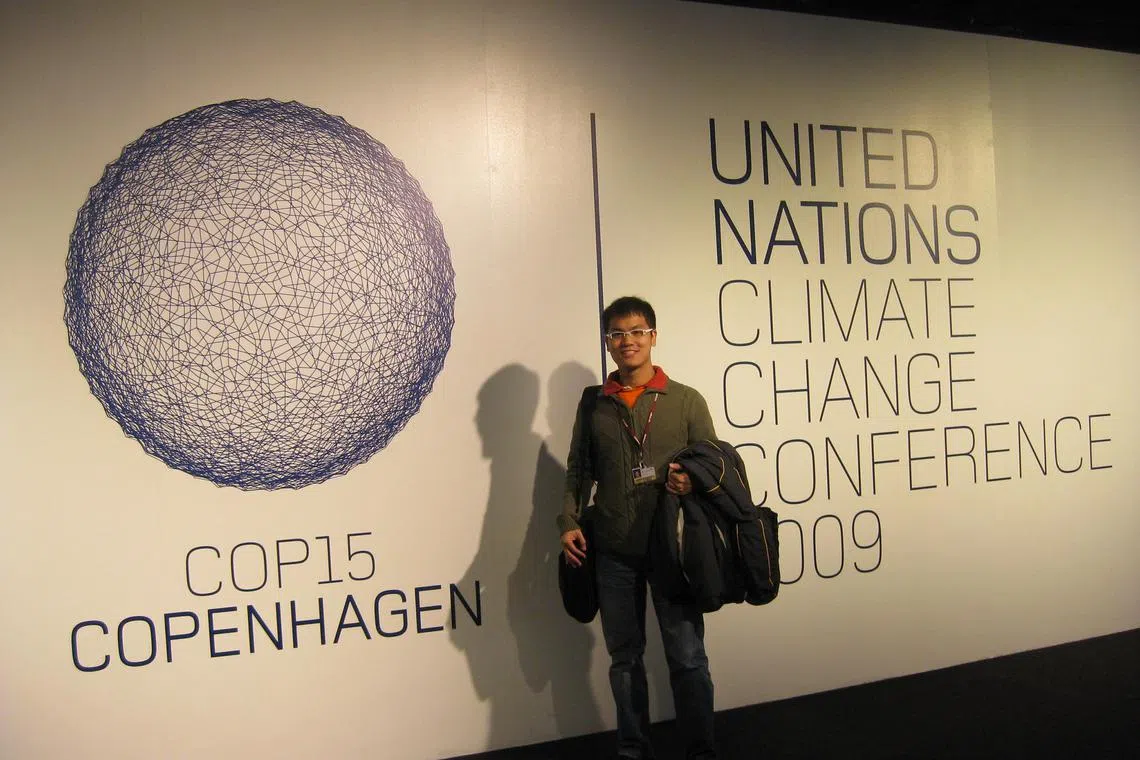
Mr Alvin Lim represented Singapore as a youth delegate at the United Nations Framework Convention on Climate Change Conference of Parties held in Copenhagen, Denmark, in 2009.
PHOTO: ALVIN LIM
He interned with Morgan Stanley in 2011 and wanted a full-time job with the American investment bank so badly, he worked from 4am to 11pm during the 10 weeks he was there. Having no elite school background to boast of, he felt he had to outperform others to succeed.
“I felt like I had very little to lose and I had a lot to gain,” says Mr Lim. A year later, he clinched a role as an analyst there upon graduation and rose to vice-president of equity research after six years.
Eager to try entrepreneurship, he left in 2018 to join Snapcart, a Jakarta-based start-up, where he was chief product and strategy officer and later chief financial officer for just over a year, before moving to GIC, followed by his current company in 2021.
“There isn’t one path to success,” says Mr Lim, whose 28-year-old fiancee works in the asset management industry.
“I hope that others like me, who are maybe late bloomers, or parents or teachers who may think that their child is hopeless, will now view each individual in a better light. Encourage young people to be a better version of themselves, as opposed to comparing themselves with others.
“Be better than you were yesterday.”

